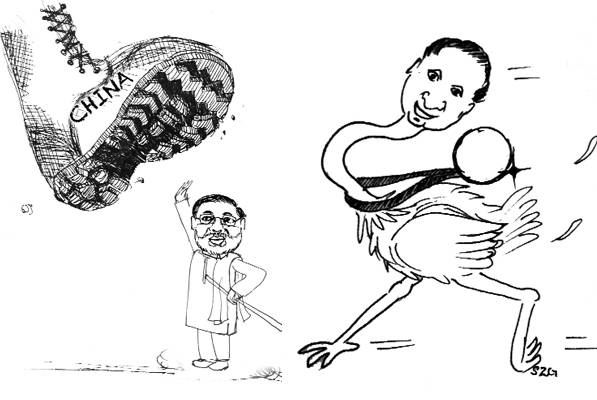
Women’s world
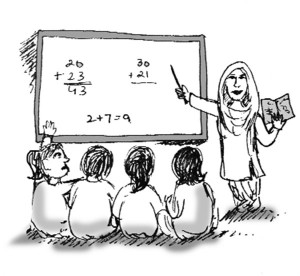
Sir,
The connections between globalization and women’s education have never been more under the public gaze, but much of the debate on the issue has been superficial. It could be argued that all too often, the messages communicated are distorted via ‘western perceptions’. Women educationalists have a responsibility therefore to ensure that the voices of the women and marginalized are heard.
Globalization is having an increasingly direct impact upon people’s lives. It is also becoming relatively easier to access information about global issues. Educationalists can no longer argue that ‘education’ and ‘globalization’ are separate. People are more aware of global issues now, but how do they decide as to how they will critically assess the information they receive? That is why women’s education and development is so important.
Women’s education will help them understand their own self and situation in a wider context, make connections between local and global events, develop skills and knowledge to interpret events affecting their lives (for example sexual abuse and harassment), understand the cause of global inequality and justice, combat racism and xenophobia, widen their horizons, and make a difference in their worlds by participating in the society.
It is often where women educationalists have engaged in broader debates that progress has been made. Through a range of international and national policies and programmes, the term ‘global’ is becoming part of everyday language of educationalists.
Women’s education should also offer a range of perspectives and views. It needs to be perceived as making connections between local and the global values based on equity, social justice and women’s rights. In order to achieve this, women development educationalist should see their role as people who can influence societies and empower women to develop the skills, knowledge and values that can make connections between their own lives and those of people elsewhere in the world.
Only then will societies promote learning that creates a better understanding of women’s inequality in the world and gives women the skills and value base to enable them to create their own voices and forms of engagement to secure their social lives.
Rameesa Khan,
Lahore.
What ails Pakistan
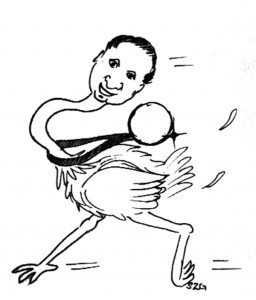
Sir,
The crowds that throng Imran Khan’s rallies are disappointed with the PPP and the PML-N more than supportive of the PTI for the party’s own merit. Despite the fact that Imran Khan is surrounded by men of controversy who have been part of tyrannical governments run by corrupt dictators, he manages to pull large crowds.
The only option left for Prime Minister Nawaz Sharif is to be seen making changes in his team, appoint people on merit to head state institutions and corporations, and ensure that independent regulatory bodies are empowered to protect state funds and assets and people’s rights.
Take the food industry for example. Now that farmers have been allowed to charge prices prevailing in the international market, the prime minister must bring their income under direct taxation, while making sure that wages for farm labor are hiked proportionately. Unless every income is subjected to direct taxation, he cannot provide subsidy for basic food items, without which anger on the streets will not subside.
Universally accepted norms and ethics such as Conflict of Interest codes must be strictly followed by members of his cabinet and all those holding public offices. The patience of masses, driven to desperation by massive corruption and inflation, has run out, and they seek change. International donor agencies and elected heads of state of major aid giving nations in Europe and the US have repeatedly emphasized that it is time Pakistan’s affluent rich start paying taxes, instead of burdening western taxpayers.
All international regulatory agencies have declared Pakistan at the top of the lists of countries with the worst socio-economic indicators, with Polio, Hepatitis, Breast Cancer and Infant Mortality assuming an epidemic situation.
Malik Tariq,
Lahore.
Beware Bilawal
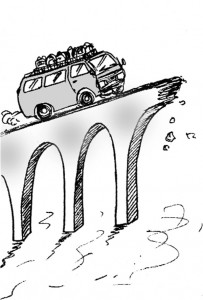
Sir,
This is with reference to the reports of the Khairpur bus accident that killed 57 people. Mere expressions of sympathy and statements of the chief minister or the prime minister “taking note” are not enough; nor are the usual announcements for compensation. Those responsible for massive corruption in building highways, be it NHA or the provincial government, and those who are responsible for regulating the safety of the passengers, cannot be absolved.
The PPP has ruled Sindh for more than seven years. It was under their rule that corrupt bureaucrats were calling the shots, and their handpicked men notorious for abuse of power and financial mismanagement destroyed an already decadent infrastructure.
If highways in Sindh are the worst in the country in spite of billions of rupees allocated for their construction, development and maintenance, the onus rests on those who held power. Be it the Thar famine or the criminal gangs that reap a harvest in Karachi and interior Sindh, the buck stops with all those who have ruled this province, including their coalition partners holding key ministerial posts in health and ports & shipping.
The development of infrastructure in Karachi and interior Sindh took place prior to 1958, and then under Zulfikar Ali Bhutto. Thereafter, all that has been witnessed is systematic plunder and exploitation of the province. Hundreds of thousands of people have perished in floods that have ravaged this province repeatedly, with not even an iota of improvement.
If young Bilawal wants the PPP to perform, he needs to review the role of the aunts and uncles of his party, and weed out corruption. Otherwise this party will never regain its lost prestige and credibility.
Aneela Chandio,
Sukkur.
Delhi’s dreams
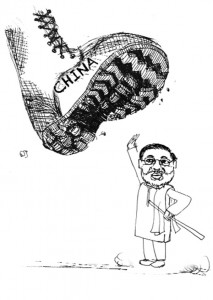
Sir,
The Indian strategic community appears to be perturbed by the rise of China as an economic powerhouse of the world and unprecedented growth in China’s offensive and defensive military might over the preceding decades. In order to position itself as a great power, India is also trying to emerge as a formidable pole of economic and military power. To realize the dream into a tangible reality, India is striving hard to enhance its hard and soft power by reaching to far corners of the world in order to secure and safeguard its geo-strategic, military and economic interests. This hot pursuit of great power status is replete with multifaceted pitfalls leading to direct diplomatic and economic confrontation with China.
Since Chinese takeover of the Gwadar port, Indian government has been deliberating to manipulate by constructing the first foreign project at Chabhar in Iran. Located on the confluence of the Indian Ocean and the Gulf of Oman, the port is 76 km away from Gwadar with close proximity to the Strait of Hormuz, a conduit to 4% of the world’s oil trade. In this regard, Narendra Modi’s government approved $85.21 million investment, to complete the strategic point. The country intends to expand road network from Chabhar and intends to link up Zaranj-Delaram road to Afghanistan’s “garland” road network that would connect port with major cities of Afghanistan, including capital Kabul.
To extend sea route, the port will be developed by joint venture of the Jawaharlal Nehru Port Trust (JNPT) and the Kandla Port Trust (KPT). To this end, fully constructed berths will be released at Chabahar for a decade, which could be renewed by “mutual agreement.”
Not surprisingly, the project also aims to keep an eye on the two rivals in the region Pakistan and China, though the latter is not declared one. Soon after the Chinese takeover of Gwadar, Indian apprehensions of “China encircling India” started to surface.
Meanwhile, Pakistan views the growing Indian diplomatic and economic footprint in Afghanistan with suspicion and anxiety. Due to Pakistan’s security concerns and geo-strategic sensitivities, so far India has resisted Kabul’s demand for supply of heavy and offensive military hardware to ANF.
Israel is deeply concerned about the prospects of a deal with Iran, demands stringent sanctions, and considers some restrictions on Iran’s nuclear project as failure.
Finally, India foresees the operationalization of port as a mean to hold global footprints, but the mighty China is more vigilant and pragmatic. For the first time in history, two Chinese warships docked at Iran’s Bandar Abbas port to take part in joint naval exercises in the Gulf, endorsed by Iranian media and Chinese defence Minister.
So far, there is little chance that Indian aspirations to emerge as a regional power will be fulfilled, in the presence of a mighty China and a challenging Pakistan.
Saima Ghaznafer,
Gujrat.
China’s string of pearls
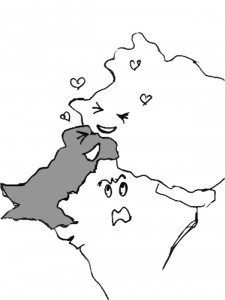
Sir,
China has long had the ambition of setting up a warm water port, and Gwadar is a strategic dream come true. China wants to set up outposts located along its energy lines across the globe to monitor and safeguard energy flows.
Lin Boqiang, director of Energy Economics Research centre at Xiamen University, explained: “I do believe China will build the port at the astonishing ‘Chinese speed’ to materialize the port’s strategic values.”
It offers a shorter route to western China—via the recently expanded Karakoram Highway across Gilgit-Baltistan in northern Pakistan—and an alternative route to vulnerable sea lanes through the Strait of Malacca.
China is expected to build a naval base at Gwadar and its navy would maintain a regular presence there. The US sees Gwadar as part of China’s strategy of building a “string of pearls” presence on the Indian Ocean. Gwadar is the most important of these pearls. Beijing has also developed Hambantota port in Sri Lanka and built a container port facility in Chittagong in Bangladesh. Baluchistan and Xinjiang are the largest, least developed and most restless provinces in Pakistan and China. Beijing and Islamabad have decided to start $18 billion China-Pakistan Economic Corridor connecting western China to South Pakistan. Other projects being started are a 15 mile tunnel connecting both countries and a fiber optic cable connecting Rawalpindi to China, and expansion of Karakorum Highway. A motorway from Gwadar, Balochistan to Kashgar in Xinjiang province is planned as well as a rail link connecting the two. China has agreed to invest $900.05 million to develop infrastructure projects on its own in Gwadar.
Gwadar’s development will also integrate Kech region and Turbat into the national mainstream due to its proximity with the region decreasing the effectiveness and the appeal of the Baloch fighters.
Its natural layout and depth will enable large ships to dock, a characteristic absent in Dubai and Chahbahar. To facilitate rapid commercial and economic development special facilities will be provided like general tax-holidays, no VAT and generous incentives pertaining to business ownership and employment of foreigners.
The purpose is to accelerate economic development and foreign and local investments. Gwadar will also serve as a regional oil refining hub due to its port capacity and land availability on the coast. It is planned to further develop Ormara naval base and port in Balochistan once Gwadar reaches 70% functional capacity.
Gwadar will also support Ormara naval base in case any emergency, this will considerably extend Pakistan’s sea control. Karachi has been quite unsuitable as a naval port as its shallow approaches require a long entrance channel which is easily susceptible to mining.
Gwadar is meant to be the largest business centre of the world. Maritime security, trade and development through effective sea lanes are absolutely vital as sea power is of the greatest importance.
Iqra Shahnaz,
Rawalpindi.
LBW
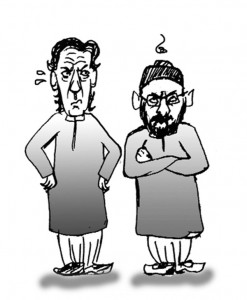
I bowl ‘no balls’ I must tell you,
So asked for some from GHQ,
But the general said we don’t love you
And won’t help me out with a friendly coup,
Why Hashmi, damn him, let the cat out too,
Of my cunning little bag, I just have no clue
The big fixed match has just been seen through
Now the pavilion crowds are ditching me too
And I am only left with old TUQ
Hence I’m over and out, LBW,
My tummy’s churning, I need my Banni Galla loo
Where an Oxford Saab can take a decent pooh,
So ‘Youthias” I’’m off, leaving the match to you,
When Azaadi’s achieved, call me back, will you?
Nooruddin Ahmed,
Aylesbury, UK.

